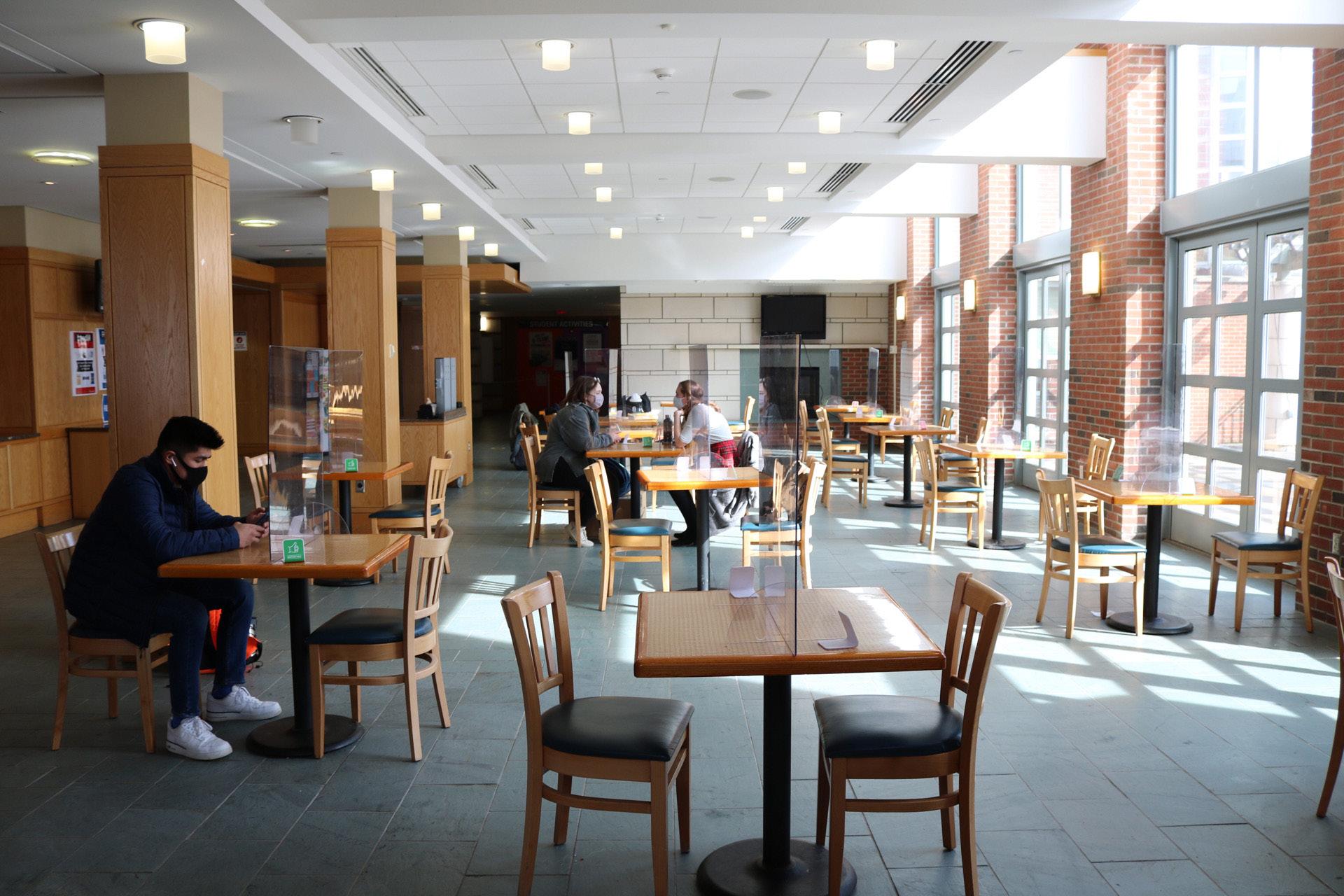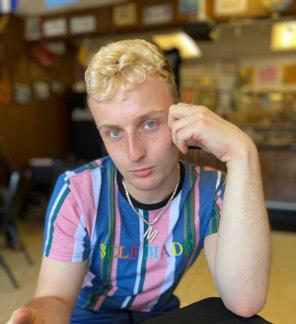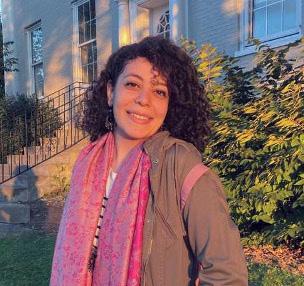
5 minute read
COVID-19 Policies
Campus COVID-19 Policies
By Brayton Slusser ‘23 and Cameron Guan ‘22 Staff Writers
Advertisement
The health and safety of students, faculty, and staff are the primary concerns of Hobart and William Smith Colleges this academic year, ensuring that students can fulfill their academic goals, while still preventing the spread of Covid-19. With many of last year’s major restrictions being lifted, the administration is focused on returning the campus to certain stages of normalcy, while also maintaining the wellbeing of faculty, staff, and students. The Herald conducted interviews with Vice President for Campus Life and Dean of Students, B. Barile as well as several William Smith students including Natalya LaLiberty ’23, Sarah Shields ’22, Jasmine Pellegrin ’23, and Katherine Healy ’23 to gain further insight into the experience of students in quarantine.
With students eager to socialize and leave the all too familiar confines of their dorm rooms this semester, the challenge of balancing a return to normalcy and campus health is extremely complex. Numerous factors must be considered to avoid the spread of Covid-19. During an interview with B. Barile, they stated to the Herald that student vaccination rates were “Very high, well over 90% when we had students arriving at campus,” which prompted the Colleges to only initially focus on identifying and testing those who had not been fully vaccinated.
On August 23rd, the first day of classes, 14 cases had been reported, with only 2 of them being unvaccinated students. As cases began to increase in the following days, the administration reimplemented weekly routine testing for all students. While precautions had been taken, HWS faculty have expressed relief that students are taking the initiative to be tested at Hubbs when feeling symptomatic, and according to Barile that is what will help continue to reduce cases as the semester goes on.
While HWS students have a relative understanding of testing procedures, there are still several questions that are unanswered, especially for students within the confines of quarantine. According to two students in quarantine, Sarah Shields and Natalya LaLiberty, most of their problems during their isolation period had gone ignored and unanswered. According to Barile, “Students should reach out to the Covid-19 Resource Center’s to answer questions around quarantine light or regular quarantine.” Barile further clarified that there is a dedicated Covid-19 Resource Coordinator, Michael Kelly, who is in charge of communication with students in quarantine and working with the Resource Center to ensure that questions are answered, and students needs are met.
All four students interviewed by the Herald expressed satisfaction with how well prepared their rooms were upon arrival, in addition to microwave and fridge access, allowing them to “keep track of our own nutrition.” However, Pellegrin and Healy reported that they are “frustrated with the lack of communication between
the isolated students and on-campus staff.” All four students reported that their questions to Kelly had gone unanswered or that Kelly taken up to two days or more to answer. Both Pellegrin and LaLiberty reported having symptoms of “lung pain” and “low oxygen” and stated that it took “two days of continuous texting” before they received a response. Healy also expressed concern over the lack of medical care and supplies accessible to isolated students, stating that, “They are leaving students here to fend for themselves.” These students also highlighted major academic struggles for quarantined students, as three of the four students reported having difficulties with at least two or more of their classes providing accommodations during their isolations. Covid-related concerns are still prevalent on campus, but students, administrators, and staff are Photo Courtesy Herald Archives continuing to work towards better communication for the health and safety of individuals and the community.
By Kseniya Slutskaya
Herald Contributor
Six Fulbright recipients from different parts of the world came to HWS this year to both teach their native languages and study. The Fulbright is the US program which provides grants for foreign students to travel to the US and be Foreign Language Teaching Assistants (FLTA) as well as for the American students to go abroad for the same reason.
This program is not only about teaching the language, but mainly about being an ambassador of your country and destroying stereotypes about different aspects of foreign cultures. This is the reason why HWS FLTAs are organizing conversation tables, discussions, cultural events besides teaching. Read about these unique personalities and feel free to contact them!
Name: Joubert Maxence (France)
Education: BA in French Literature, First year of MA, French as a Foreign Language
Course taught: French language (101, 201), French conversation table (Thursday, 3:30 pm-4:30 pm)

E-mail: JOUBERT@ hws.edu
How did you get into this program?
I had thought about my Fulbright program 5 years before my actual application. I was in my first year of bachelor when I was discovering the advantages of this program, especially its financial benefits. This is a very important aspect for me since I come from a low-income family and can’t afford a trip to the US on my own. [Check hwsherald.com for the rest of the interview!]
Name: Matías Fernández (Argentina)

Education: Teacher of English (BA)
Course taught: Spanish 101 & 201, Spanish conversation table (Thursday, 12:30 pm – 1:30 pm)
E-mail: FERNANDEZ@hws.edu
What surprised you in America?
On the one hand, those basic everyday things which I cannot find in my home country. On the other hand, the things that I knew before coming and now I have a chance to compare. During my stay here I have been surprised by the size of things in America: buildings, the colleges, supermarkets, parking lots, food packages and many other things. [Check hwsherald.com for the rest of the interview!]
Name: Reem A. H. Elhanafi (Egypt)

Course taught: Arabic, Arabic conversation table (Thursday, 7 pm – 9 pm, biweekly)
E-mail: elhanafi@ hws.edu
How would you encourage students to learn Arabic?
I would not start by teaching them the language, but the culture, which will get them interested more about the language. [Check hwsherald.com for the rest of the interview!]







